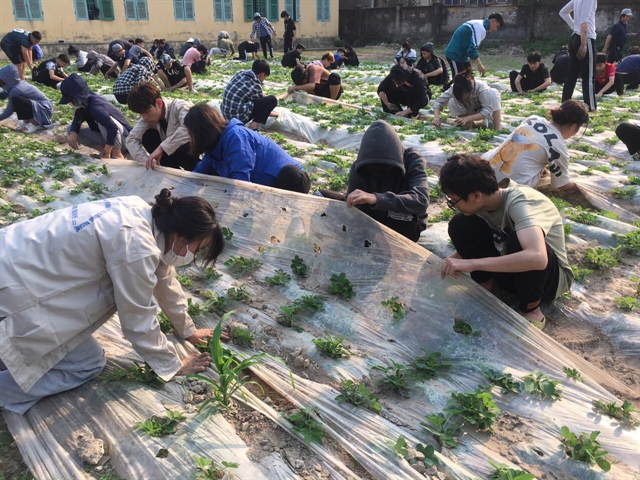Việt Nam has shown great interest in adopting Japan's high school agriculture education model, which aims to equip students with agriculture knowledge along with high school-level general education.

Việt Nam has shown great interest in adopting Japan's high school agriculture education model, which aims to equip students with agriculture knowledge along with high school-level general education, heard participants at a seminar themed "Vietnam-Japan cooperation towards green growth" in Hà Nội today.
Nguyễn Đỗ Anh Tuấn, head of the International Cooperation Department under the Ministry of Agriculture and Rural Development (MARD), said a pilot programme, located in the northern province of Nam Định, has proven to be popular with students coming from all across the country.
In addition, he said Việt Nam's priorities include improving plant varieties, high-tech production and processing, as well as forest protection, capital investment and mitigating the adverse effects of natural disasters. Tuấn said bilateral cooperation in agriculture could increase by 200-300 per cent in the coming decades.
Vương Thị Minh Hiếu, deputy head of the Department of Industrial Zones under the Ministry of Planning and Investment (MPI), said the programme is in line with Việt Nam's focus on developing and improving the quality of human resources in rural areas, as well as on attracting foreign investment in the field of agriculture.
As of August 2023, Japan has 5,168 active projects with a total registered investment capital of more than US$71 billion. Japan currently ranks third among 143 countries and territories investing in Việt Nam. Japan's investment capital in August 2023 in Việt Nam reached $2.6 billion, an increase of 73 per cent compared to the same period last year.
The average investment capital scale for a Japanese project is $13.8 million, higher than the national average of $12 million. Japanese investment projects have had a significant impact on the socio-economic development of Việt Nam, including improving the business environment and the social environment; promoting the development of agriculture, forestry, and fisheries; contributing to poverty reduction to the structural transformation of the economy towards industrialisation and modernisation. The East-Asian country remains Việt Nam's top ODA partner, second in labour cooperation and exchange, third in tourism and fourth in trade. — VNS





